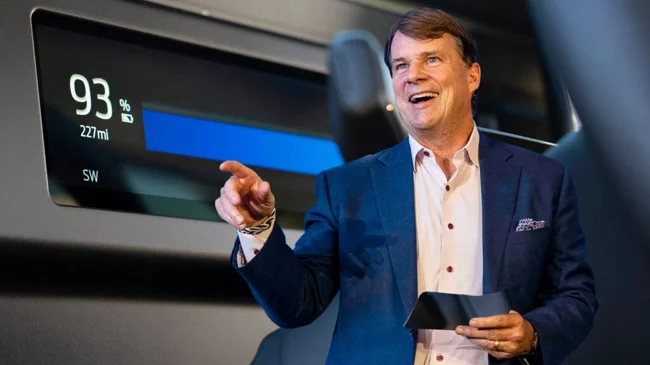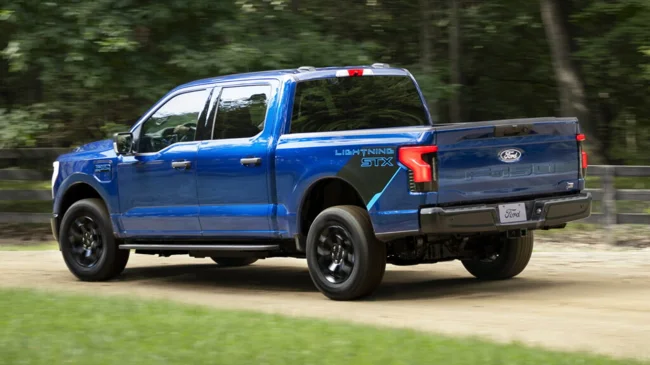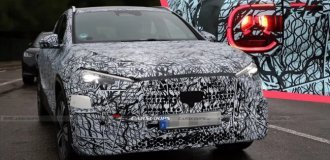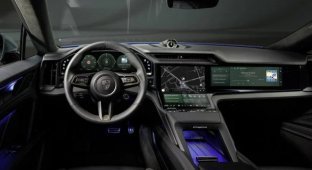Ford CEO warns of a possible halving of electric vehicle sales (3 photos)

Electric Vehicle Market Forecast
Ford CEO Jim Farley has expressed concern about the future of the electric vehicle market in the United States. He said the market could be much smaller than previously expected. Electric vehicles currently account for 10 to 12 percent of the U.S. auto market, but that could change dramatically.
Impact of Tax Breaks
The elimination of the federal tax break for electric vehicles has had a significant impact on the industry. Without the $7,500 stimulus, Farley fears that demand for electric vehicles in the U.S. could plummet and sales could halve. This underscores how important the credit has been to the country’s transition to electric vehicles.
At the Ford Pro Accelerate event in Detroit, Farley said that electric vehicles could soon account for just 5 percent of the total U.S. auto market, down from 2022 levels and well below the 10 to 12 percent he had predicted this month. The forecast suggests a more modest future for electrification than many experts had predicted.
Industry Outlook
I think it will be a viable industry, but it will be smaller, much smaller than we thought, especially with the changes in tailpipe emissions policy and the elimination of the $7,500 consumer incentive. We’ll find out in a month. I wouldn’t be surprised if U.S. electric vehicle sales drop to 5%.
The Ford Model E team is constantly analyzing demand for electrified vehicles, Farley said. The automaker will also have to adjust plans and decide how to use excess capacity for electric vehicles and its battery plants. 
Adapting to the new conditions
We will fill them, but it will be an additional stress because we had a four-year predictable policy. Now the policy has changed. We will all have to adapt, and I believe it will be good for the country, but it will be another test.
During the same event, Farley also admitted that Ford customers are not interested in expensive electric cars. So the automaker needs to create cheaper electric models, but after the tax credit is eliminated, it will become much more difficult.
Customers are not interested in $75,000 electric cars. They find them interesting. They’re fast, efficient, and you don’t have to refuel, but they’re expensive. 
These changes in policy and market conditions could lead to a rethinking of strategies not only for Ford but also for other automakers. The rising costs of developing affordable models and the need to compete in a smaller market could cause structural changes in the industry, affecting the pace of electrification in the coming years.






























